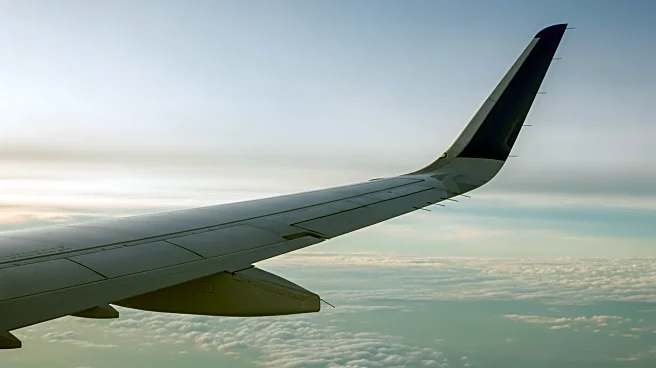What's Happening?
Southwest Airlines has announced a reduction in its flight operations due to a government-mandated cut in air travel capacity. This decision follows the Trump administration's directive to reduce flights
by up to 10% at 40 major U.S. airports, citing air traffic controller fatigue as a primary concern. The reduction will begin with a 4% cut on November 7, escalating to 10% by November 10. Southwest has assured customers that most flights will remain unaffected and has implemented a flexible refund policy for those whose flights are canceled or who choose not to travel. The airline will automatically rebook affected passengers unless they opt for a refund. Notifications will be sent via the airline's app and website.
Why It's Important?
The flight reductions are a direct consequence of the ongoing federal government shutdown, which has led to air traffic controllers working without pay. This situation highlights the broader impact of the shutdown on essential services and the economy. Airlines, including Southwest, are adapting by offering flexible refund policies to mitigate customer dissatisfaction. The reduction in flights could affect thousands of passengers daily, potentially disrupting travel plans and impacting airline revenues. The situation underscores the critical role of government funding in maintaining operational stability in the aviation sector.
What's Next?
As the flight reductions continue, airlines are expected to provide advance notice to affected passengers and maintain communication through digital channels. The government shutdown remains unresolved, with political negotiations ongoing. Airlines will likely continue to adjust their operations based on government directives and passenger demand. The aviation industry may face increased scrutiny regarding safety and operational efficiency during this period.
Beyond the Headlines
The government shutdown's impact on air travel raises questions about the sustainability of relying on federal funding for essential services. It also highlights the vulnerability of the aviation industry to political and economic disruptions. Long-term implications may include a reevaluation of contingency plans and funding mechanisms to ensure uninterrupted service during government impasses.








